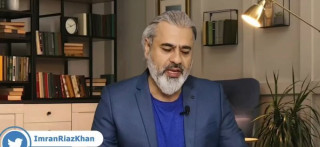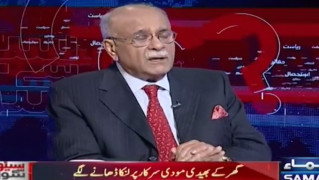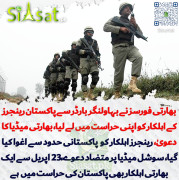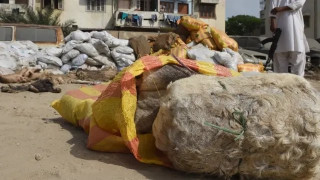Faiza
Moderator
Surat H?d
And O my people, give full measure and weight in justice and do not deprive the people of their due and do not commit abuse on the earth, spreading corruption.
Surat Al-M?'idah
O you who have believed, be persistently standing firm for Allah , witnesses in justice, and do not let the hatred of a people prevent you from being just. Be just; that is nearer to righteousness. And fear Allah ; indeed, Allah is Acquainted with what you do.
Do not split from the Jamaa'ah
as a result of a corrupt leader
And O my people, give full measure and weight in justice and do not deprive the people of their due and do not commit abuse on the earth, spreading corruption.
Surat Al-M?'idah
O you who have believed, be persistently standing firm for Allah , witnesses in justice, and do not let the hatred of a people prevent you from being just. Be just; that is nearer to righteousness. And fear Allah ; indeed, Allah is Acquainted with what you do.
Do not split from the Jamaa'ah
as a result of a corrupt leader
Hadith - Al-Bukhari and Muslim, and other narration by at-Tirmidhee (no. 2867) and Ahmad (4/130).
Allaahs Messenger (Salal Lahu Alehi Wasalam) said, "He who sees from his ruler something he dislikes, let him be patient with him, for he who splits away from the Jamaaah by a handspan and then dies, dies a death of Jaahiliyyah" and in a narration, "then he has thrown off the yoke of Islaam from his neck."
Hadith - Reported by Ahmad (3/403) and Ibn Abee 'Aasim (2/521) with a saheeh isnaad.
It is authentically reported from the Messenger in the hadeeth of 'Iyaad ibn Ghunum who said, "The Messenger of Allaah (Salal Lahu alehi Wasalam) said, 'Whoever desires to advise the one with authority then he should not do so openly, rather he should take him by the hand and take him into seclusion (and then advise him). And if he accepts (the advice) from him then (he has achieved his objective) and if not, then he has fulfilled that which was a duty upon him.' "
In order to Lead the People,
You Must Qualify to be a Wali
You Must Qualify to be a Wali
Hadith - Dawud 2078, Narrated 'Aisha r.a. [also related by Ahmad, Tirmidhi, and others. Tirmidhi said, this is a hasan Hadith]
"If they dispute, then the sultan (man in authority) is the wali of those who have no wali."
The Duty of the Muslim to Give Sincere Advice to the Corrupt Ruler
"The master of martyrs (sayyid al-shuhada) is Hamza, and a man who stands up to a tyrant ruler and gives him nasiha (advice). And so the ruler kills him"
The Prophet (SAW) continued to say : 'By Allah you have to enjoin good (Maroof) and forbid evil (Munkar), and hold against the hand of the unjust ruler (Zalim), and force him on the truth strongly, or you have to limit him to the truth'. By this evidence, which is the hadith commenting on the verse, Allah (SWT) has prohibited us from remaining silent against the evil (Munkar), and He commanded us to remove it. Allah (SWT) commanded the Muslims to enjoin Maroof and deny Munkar, and made it a duty upon them to do so. Allah (SWT) said; 'Let it be from among you a group who call to the good, enjoin Maroof and deny Munkar'. Allah (SWT) also said: 'You have been the best nation (Ummah) brought to the people, because you enjoin Maroof and deny Munkar'. [Musnad of Ahmad]
Fighting a corrupt muslim ruler
If an Imam (leader) or Amir (ruler) becomes corrupt he should first be given a call to Islam (submission) in private, or possibly in public if his evil deeds were done in public. If he does not turn away from his evil deeds, he should be overthrown or removed from position. However, in the process of removing him from position, he should not be physically fought, such as waging war with weapons. This is because the ruler is still muslim, and the muslims are not to attack or kill another muslim. If, however, the Muslim leader or ruler completely abandons his salat, he nullifies his Islam and can be fought if necessary. (However, to prove this, it would take an Islamic court or similar situation in which the person could defend themselves against all accusations).
Hadith - Sahih Muslim 4569, Narrated Umm Salamah, r.a.
The Messenger of Allah (peace be upon him) said: In the near future there will be Amirs (rulers) and you will like their good deeds and dislike their bad deeds. One who sees through their bad deeds (and tries to prevent their repetition by his hand or through his speech), is absolved from blame, but one who hates their bad deeds (in the heart of his heart, being unable to prevent their recurrence by his hand or his tongue), is (also) safe (so far as God"s wrath is concerned). But one who approves of their bad deeds and imitates them is spiritually ruined. People asked (the Prophet): Shouldn't we fight against them? He replied: No, as long as they say their prayers.
Buraidah reported that the Prophet said, "The pact between us and them is prayer. Whoever abandons it is a disbeliever."
Rulers will be held accountable to Allah
Hadith - Al-Bukhari 4.661, Narrated Abu Huraira, r.a.
The Prophet (saaws) said, "The Israelis used to be ruled and guided by prophets: Whenever a prophet died, another would take over his place. There will be no prophet after me, but there will be Caliphs who will increase in number." The people asked, "O Allah's Apostle! What do you order us (to do)?" He said, "Obey the one who will be given the pledge of allegiance first. Fulfil their (i.e. the Caliphs) rights, for Allah will ask them about (any shortcoming) in ruling those Allah has put under their guardianship."
Hadith - Sahih Al-Bukhari 9:265
Allah's Messenger SAW said, "If any ruler having the authority to rule Muslim subjects dies while he is deceiving them, Allah will forbid Paradise for him."
The Noble Qur'an - 4:111
And whoever earns sin, he earns it only against himself. And Allah is Ever All*Knowing, All*Wise
Sahih Muslim - Volume 9, Book 89, Number 264, Narrated Ma'qil
I heard the Prophet (saaws) saying, "Any man whom Allah has given the authority of ruling some people and he does not look after them in an honest manner, will never feel even the smell of Paradise."
Action For The Muttaqun.
- Stand up to a corrupt leader by first calling him to Islam in hopes that he will repent and correct any haram (Islamically forbidden) behavior or teaching. If this does not work, consider it the collective jihad of the community to address the problem.
- An Imam of a Masjid can be replaced, but a governmental leader cannot be overthrown as long as he is Muslim. In both cases, sincere advice based on Quran and Sunnah (not feelings) should be given to the Imam or Sultan.
- An Imam who is sexually immoral or otherwise a proven fasiq, does not qualify to be a wali to sisters and therefore does not qualify to be an Imam or ruler over the people.
- Facts are not established against a person until that person is allowed to defend themselves against all accusations. A person is truly considered innocent until proven guilty in Islam.

Corrupt Muslim Leaders | Khalid Yasin
The True Revolution
How to bring Revolution
Whats the ruling on changing evil in muslim world - Sheikh Assim Luqman Alhakeem
Islam forbids violent rebellion against an unjust Muslim ruler
Question:
Should Muslims rebel against a ruler who fails to implement the commands of Allah?
Answer:
In the name of Allah, the Beneficent, the Merciful
It is not lawful for Muslims to violently rebel against an unjust Muslim ruler. Rather, Muslims should be patient and encourage reform through non-violent action.
Allah said:
Surah An-Nisa 4:59
In many narrations, the Prophet has forbidden us from rebelling against the rulers.
Hudhayfa ibn al-Yaman reported: The Messenger of Allah, peace and blessings be upon him, said:
Rulers after me will come who do not follow my guidance and my tradition (sunnah). Some of their men will have the hearts of devils in a human body.
I said, O Messenger of Allah, what should I do if I live to see that time? The Prophet said:
You should listen and obey them even if the ruler strikes your back and takes your wealth, even still listen and obey.
Source: Sahih Muslim 1847, Grade: Sahih
Awf ibn Malik reported: The Messenger of Allah, peace and blessings be upon him, said:Source: Sahih Muslim 1847, Grade: Sahih
The best of your rulers are those whom you love and they love you, who pray for you and you pray for them. The worst of your rulers are those whom you hate and they hate you, whom you curse and they curse you.
It was said, Shall we confront them with swords? The Prophet said:
No, as long as they establish prayer among you. If you find something hateful from them, you should hate their actions but not withdraw your hand from obedience.
Source: Sahih Muslim 1855, Grade: Sahih
Umm Salamah reported: The Messenger of Allah, peace and blessings be upon him, said:Source: Sahih Muslim 1855, Grade: Sahih
There will be rulers from whom you will see both goodness and corruption. One who recognizes their evil and hates it will maintain his innocence, but one who is pleased with it and follows them will be sinful.
It was said, Shall we not fight them? The Prophet said:
Many of those who call for violent rebellion have resorted to the use of terrorism against innocent civilians. Such acts are completely rejected by Islam. The Prophet severely warned those who engage in such acts of reckless violence and rebellion.
Abu Huraira reported: The Messenger of Allah, peace and blessings be upon him, said:
Whoever rejects obedience to the ruler and divides the community and dies will have died upon ignorance. Whoever fights under the banner of one who is blind, raging for the sake of tribalism, or calling to tribalism, or supporting tribalism, and is killed will have died upon ignorance. Whoever rebels against my nation, striking the righteous and wicked alike and sparing not even the believers and does not fulfill the pledge of security, then he has nothing to do with me and I have nothing to do with him.
Source: Sahih Muslim 1848, Grade: Sahih
The righteous predecessors (salaf as-salih) recognized that the evil which comes through violent rebellion is worse than the evil of the ruler himself. For this reason, they counseled patience and wisdom in the face of injustice, and they would pray for the ruler to be guided to righteousness.Source: Sahih Muslim 1848, Grade: Sahih
Hasan Al-Basri said:
Source: Tabaqat Al-Kubra 8789
At-Tahawi said:
Source: Aqeedah At-Tahawi
Ahmad ibn Hanbal said:
Do not confront the ruler, for his sword is unsheathed.
Source: Jami Ulum wal-Hikam
The main evidence used to justify a violent rebellion against the ruler is the saying of Allah:Source: Jami Ulum wal-Hikam
Whoever does not judge by what Allah has revealed, then it is those who are the disbelievers.
Surah Al-Maidah 5:44
It is argued that if the Muslim ruler does not refer to the Sharia for judgment, or he does not apply the proper Sharia rulings, then he becomes a disbeliever who should be killed. However, this is incorrect because the unbelief mentioned in the verse is the lesser unbelief that does not take the ruler out of the fold of Islam.Surah Al-Maidah 5:44
A man asked Ibn Abbas concerning this verse. Ibn Abbas said:
If he does that, then there is disbelief in it, but this is not like one who disbelieves in Allah and the Last Day and so on.
Ata said:
The verse means disbelief less than disbelief, wickedness less than wickedness, and oppression less than oppression.
Tawus said:
Therefore, if the ruler does not apply the Sharia properly, this is sinful but it does not justify a violent rebellion against them. Rather, the proper way to enjoin good and forbid evil regarding the rulers is through non-violent preaching, advising, and if necessary, acts of civil disobedience.
Ahmad ibn Hanbal said:
A Muslim should sincerely advise the ruler using mild speech, preferably in private.
Tamim Ad-Dari reported: The Messenger of Allah, peace and blessings be upon him, said:
Religion is sincerity.
We said, To whom? The Prophet said:
We said, To whom? The Prophet said:
To Allah, His Book, His Messenger, the leaders of the Muslims, and their common people.
Source: Sahih Muslim 55, Grade: Sahih
In the same way, Allah commanded Moses and Aaron, upon them be peace, to speak mildly to Pharaoh, even though Pharaoh was a great tyrant and not a Muslim.Source: Sahih Muslim 55, Grade: Sahih
Allah said:
Speak to him with gentle speech that perhaps he may be reminded or fear Allah.
Surah Ta Ha 20:44
If this is how Allah commanded them to speak to a great tyrant who was not a Muslim, then a Muslim ruler is even more deserving of better treatment.Surah Ta Ha 20:44
It may become necessary to be more vocal and forceful if the ruler is a stubborn oppressor. Speaking the truth to him in this case becomes a form of jihad.
Abu Saeed Al-Khudri reported: The Prophet, peace and blessings be upon him, said:
Verily, among the greatest of struggles is a word of justice in front of a tyrant.
Source: Sunan At-Tirmidhi 2174, Grade: Hasan
If the ruler commands the Muslims to commit sins, they should disobey him and not fulfill his command, but this should be done without violence. In other words, a Muslim should behave with civil disobedience.Source: Sunan At-Tirmidhi 2174, Grade: Hasan
Ali reported: The Prophet, peace and blessings be upon him, said:
There is no obedience to the leader involving disobedience to Allah. Verily, obedience is only for good conduct.
Source: Sahih Bukhari 6830, Grade: Sahih
Therefore, a Muslim should attempt to reform the ruler and enjoin good without resorting to violence. Violence and terrorism leads to the fracturing of Muslim society, which is even worse than the oppression of the rulers. Instead, Muslims must be patient and wise in the face of such injustice, and they should pray for Allah to guide the rulers to right conduct.Source: Sahih Bukhari 6830, Grade: Sahih
Success comes from Allah, and Allah knows best.
Last edited:































